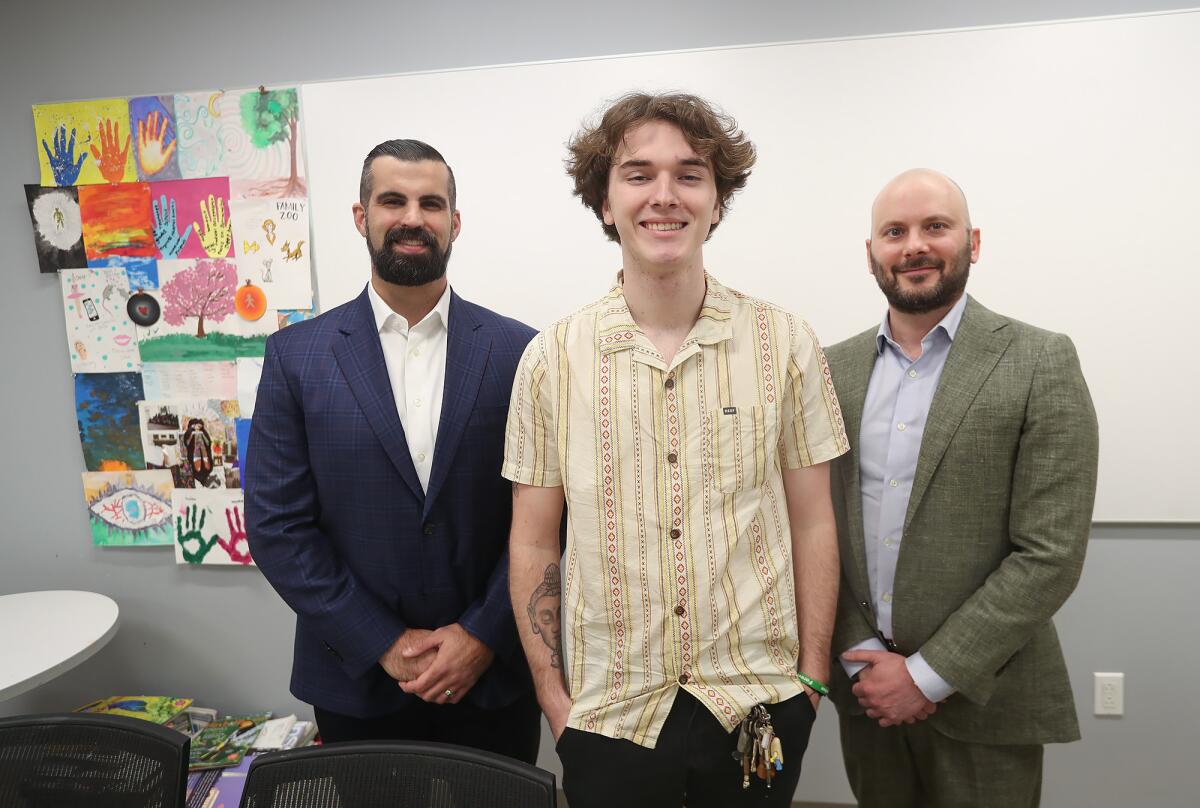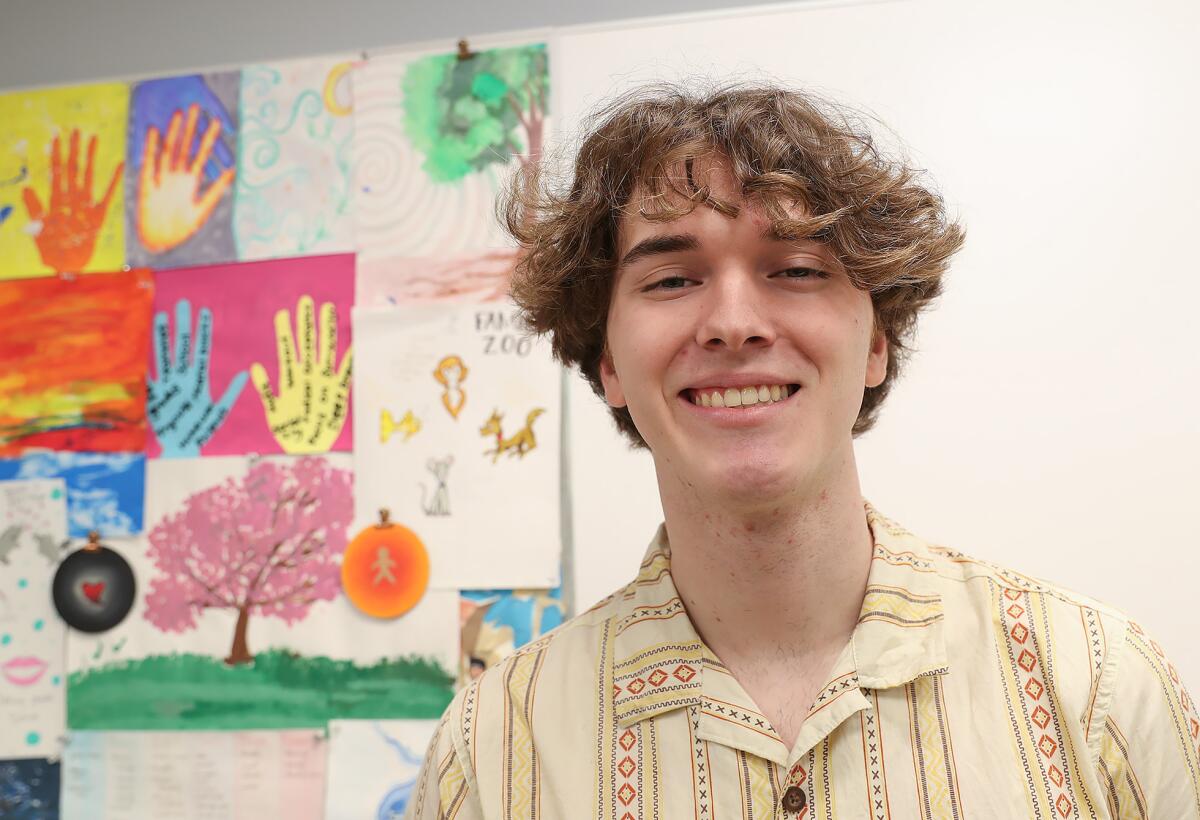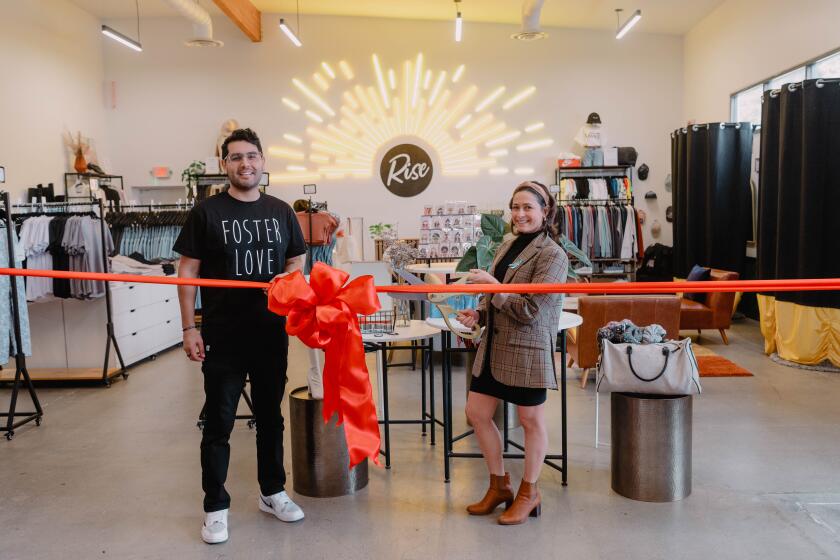Hoag expands young adult mental health program to Newport Beach

Jackson Johansen has a lot to look forward to in life.
The 19-year-old Fountain Valley native is a freshman at Orange Coast College, where he’s studying music. He’s also the lead singer in a rock and reggae band called 74odd.
Johansen recently completed Hoag’s eight-week young adult mental health program.
“I’m still an anxious person,” he said. “That doesn’t go away ever, I don’t think. But the intrusive thoughts are easier to deal with and they’re not scary, which is probably the biggest part. They’re just not as scary, and now that I have these skills, I’m not as scared that I’m ever going to get to that point again. I know how to stop myself from getting there, which is very, very nice.”
“That point” is a suicide attempt last November, a few months after Johansen graduated from Fountain Valley High. Hoag is now doubling down to help more young adults like Johansen.
The Hoag young adult mental health program expanded from Irvine to Newport Beach this month. The first Newport Beach cohort started treatment on Monday, March 25, at the Melinda Hoag Smith Center for Healthy Living, program clinical manager Dave Cook said.

Since the young adult program started in Irvine three years ago, it has helped about 125 people.
Cook said there are numerous substance use programs in the area, but not a lot of outpatient programs that focus on mental health.
“Being able to reach more young adults at this awesome stage of life and making sure their quality of life is improving, that’s a really great feeling,” said Cook, a licensed marriage and family therapist with a master’s degree in clinical psychology. “We’re also able to offer scholarships for young adults moving forward, with scholarship funds through the Hoag Foundation for young adults who may not have insurance or access to funds.”
The young adult mental health program is a sister to Hoag’s After-School Program Interventions and Resiliency Education program, better known as ASPIRE, which serves the younger population of teenagers. The young adult program helps 18- to 26-year-olds and meets three times a week, on Mondays, Wednesdays and Fridays from 10:30 a.m. to 1:30 p.m.
Patients can be referred from several different medical sources or parents themselves, Cook said, with a rolling admission system.
Each two weeks of the program is a distinct module that uses evidence-based treatment called Dialectical Behavior Therapy, or DBT, said program director Dr. Sina Safahieh.
He said the young adult population is one of the most under-served when it comes to mental health, adding that suicide is the No. 2 killer in these age groups, second only to car accidents.
“These are, from our perspective, still kids until the age of 25 when the brain fully develops,” Safahieh said. “But then they’re given adult responsibilities and they have the whole world on their shoulders, the burdens of economic difficulties and social difficulties. These are things that, especially if you’re having depression and anxiety, can lead to a lot of impairment without the support you would have as a teenager.”
Nobody ever gets discharged from the program unless they willingly want to leave, he said.
As it continues programs like Disney Days, Foster Love has introduced a store where foster teens and young women can find clothing and other supplies.
“Pretty much every other program outside of the Hoag system doesn’t have that kind of funding,” he said. “Let’s say, midway through treatment, insurance decides to pull the plug … these patients don’t get discharged. As clinicians, we don’t have to worry about begging the insurance company to keep the program going.”
Johansen has definitely seen marked improvements. He said depression steadily grew during his high school years, which aligned with the coronavirus pandemic. His father died in May 2022 after battling alcoholism, leaving Jackson to feel responsible for providing for his mother, Kimberly, and two older sisters. A few months later, his grandmother died of pancreatic cancer.
“I kept going, put a smile on my face and realized that I had to be the bigger man for my family,” Johansen said. “And I was wrong. I was very, very wrong. Instead of dealing with it with my family, I just tried to deal with it myself and push my emotions under so they didn’t see me struggling.”
After feeling intense anxiety for several days last November, he tried to take his own life. A couple of weeks later, he enrolled in the Hoag program.
“For me, a huge part of the young adult mental health program was just having a place to be, a place away from home and a support group,” Johansen said. “As much of an education space that it is, anyone can also just talk about stuff that’s on their mind. If there’s a topic that relates to something they want to share, they’re more than welcome.”
Johansen got a tattoo that reads “ASPIRE” on his right leg during his last week in the young adult program.
Cook laughed when he said that’s the first ASPIRE tattoo a patient has gotten, at least to his knowledge. But he also knows that expanding the young adult program to Newport Beach will allow for more success stories like Jackson Johansen.
“It’s all coping skills based, so it’s very tangible skills that young adults can implement almost immediately in their life to make lasting changes,” Cook said. “We’re really working with young adults to find life direction. How do we move forward in a direction that feels good, instead of maybe feeling stagnant or just — for lack of a better term — stuck a little bit?”
All the latest on Orange County from Orange County.
Get our free TimesOC newsletter.
You may occasionally receive promotional content from the Daily Pilot.





